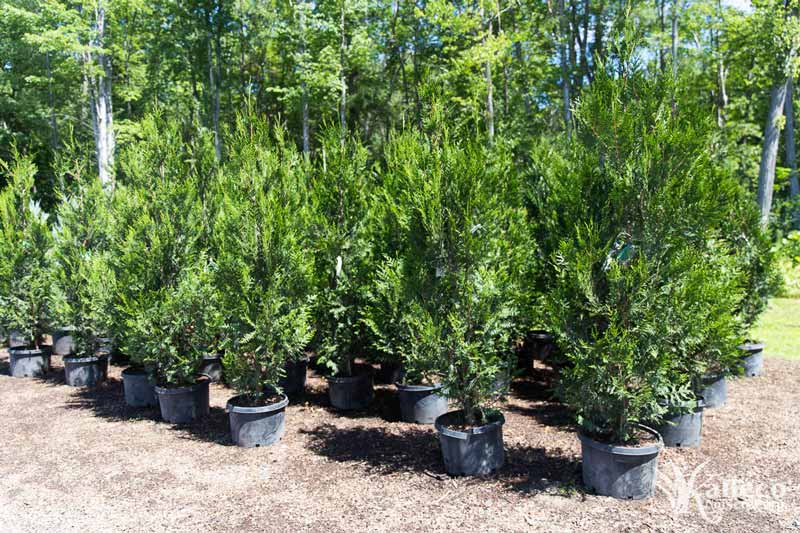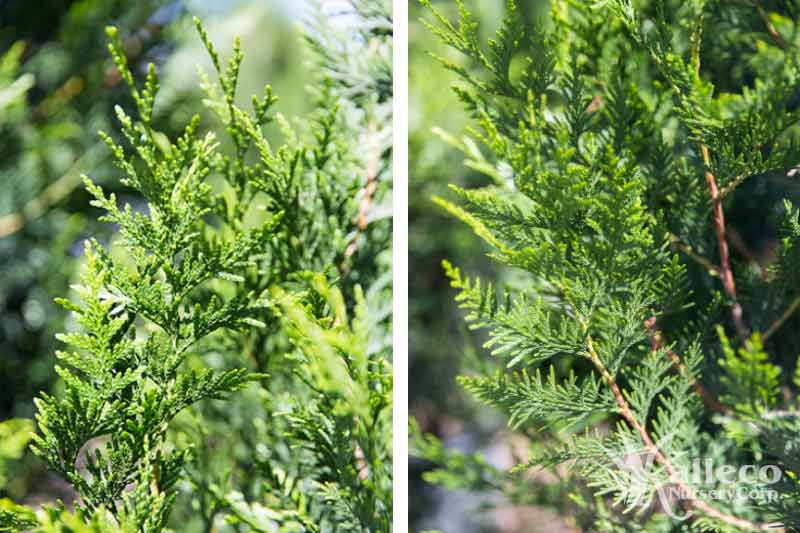 You’ll find Arborvitae virtually everywhere in the U.S. Also known as Cedar or Thuja, this evergreen can be spotted in hedges in front yards, store fronts, parks and more. Why is it so popular? Well, here are a few of our favorite things about Arborvitae.
You’ll find Arborvitae virtually everywhere in the U.S. Also known as Cedar or Thuja, this evergreen can be spotted in hedges in front yards, store fronts, parks and more. Why is it so popular? Well, here are a few of our favorite things about Arborvitae.
- Sound Cancelling: Live near 87 or another busy road? Have a noisy neighbor? Arborvitae can help. Arborvitae has thick, dense foliage, so it’s one of the best plants to cancel out unwanted noise. Plus, it’s evergreen, so that effect lasts year round.
- Wind Barrier: As we’ve covered before, the right tree in the right place can shield your home and property from wind. That means energy savings! Again, this tree’s dense, evergreen leaves make it a great barrier. Plant it along your northern property boundary to maximize this effect.
- Fence Alternative: If you crave privacy but hate conventional fencing, a Cedar hedge could be perfect for you. Planted closely together, these trees form a solid screen. That gives your yard or home the privacy you want without having a 10’ vinyl or wooden fence.
- Low Maintenance: Of course, Thuja trees are best known for being extremely easy to care for. In particular, the ‘Green Giant’ variety is disease and pest resistant. That’s on top of Thuja’s natural drought and frost tolerance.
- Fast Growing: If you’re planting a hedge, you probably want it sooner than later. Under the right circumstances, Arborvitae can grow 3’-4’ in a year! Though it averages at about 18” – 2’. It’s a tidy plant that doesn’t require too much trimming. When it does, it stands up well to robust pruning.

Recommended Varieties: Here in the north east, Western Red Cedar (thuja plicata) is the most popular Arborvitae. We recommend a hybrid variety called Green Giant (thuja standishii x plicata) that’s disease resistant.
Still not sold? Here are a couple little known facts about Arborvitae!
- Arborvitae wood is fragrant as well as rot-resistant. That’s why it’s popular for shingles, chests, closets, and even guitars!
- Back in the 19th century, it was used to treat warts and ringworm.
- Drinking tea made from the leaves of a couple varieties can provide you with a day’s worth of vitamin C. It was even used to prevent scurvy!




